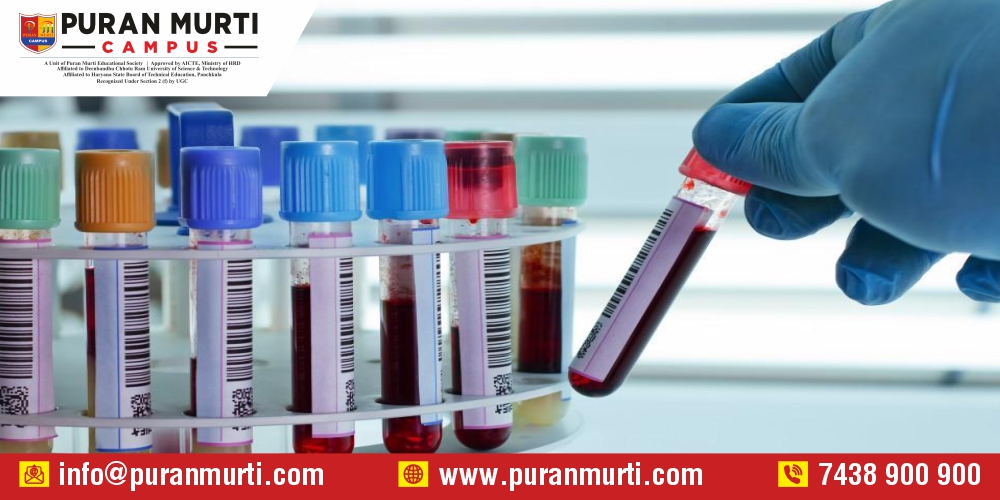What Can You Do with a Diploma in Medical Lab Technology?
Posted on : 20 July, 2024 3:46 pm
Introduction
- A diploma in Medical Lab Technology offers a gateway to various critical roles within the healthcare sector. This qualification equips individuals with the skills to perform essential laboratory tests, assist in diagnostics, and support patient care. The field encompasses diverse career opportunities, from clinical laboratory technicians to forensic specialists, each playing a crucial role in medical diagnostics and research. By completing this diploma, you gain hands-on experience and specialized knowledge, setting a strong foundation for a rewarding career in medical laboratories and healthcare environments.
Clinical Laboratory Technician
- As a Clinical Laboratory Technician, you perform routine and complex tests on patient samples to aid in diagnosis and treatment. Responsibilities include preparing samples, operating lab equipment, and analyzing results. This role requires precision, attention to detail, and a solid understanding of laboratory procedures. It’s a crucial position that supports doctors and enhances patient care.
Medical Laboratory Technologist
- A Medical Laboratory Technologist conducts advanced diagnostic tests, analyzes complex data, and ensures the accuracy of laboratory results. Responsibilities include performing specialized tests, interpreting results, and maintaining lab equipment. This role often involves supervising other lab staff and ensuring compliance with safety and quality standards. Technologists play a vital role in accurate diagnosis and effective patient management.
Laboratory Manager
- A Laboratory Manager oversees daily operations in a medical or research lab, including staff supervision, budgeting, and ensuring compliance with regulations. Responsibilities include managing laboratory workflows, maintaining equipment, and ensuring accurate test results. This role requires strong leadership, organizational skills, and expertise in laboratory procedures to ensure efficient and effective lab operations.
Quality Control Analyst
- A Quality Control Analyst ensures the accuracy and reliability of laboratory test results by overseeing and implementing quality control procedures. Responsibilities include validating test methods, analyzing control samples, and addressing any discrepancies in results. This role is crucial for maintaining high standards and ensuring that laboratory operations meet regulatory and safety requirements. Attention to detail and analytical skills are essential.
Medical Research Assistant
- A Medical Research Assistant supports research projects by collecting and analyzing data, preparing samples, and assisting in clinical trials. Responsibilities include maintaining accurate records, coordinating with research teams, and ensuring adherence to protocols. This role is essential for advancing medical knowledge and improving patient care, requiring strong organizational skills, attention to detail, and a solid understanding of research methodologies.
Diagnostic Equipment Specialist
- A Diagnostic Equipment Specialist is responsible for installing, maintaining, and repairing medical laboratory equipment. Duties include troubleshooting technical issues, ensuring proper calibration, and training staff on equipment use. This role is vital for ensuring that diagnostic tools function correctly and produce accurate results, requiring technical expertise, problem-solving skills, and a thorough understanding of medical technology.
Forensic Laboratory Technician
- A Forensic Laboratory Technician analyzes physical evidence from crime scenes, such as DNA, fingerprints, and drug samples. Responsibilities include preparing evidence for testing, conducting specialized forensic analyses, and documenting results. This role is crucial in criminal investigations and requires meticulous attention to detail, strong analytical skills, and a thorough understanding of forensic procedures and legal requirements.
Public Health Laboratory Technician
- A Public Health Laboratory Technician conducts tests to monitor and improve community health. Responsibilities include analyzing samples for pathogens, contaminants, and other health indicators, and supporting disease outbreak investigations. This role is vital for ensuring public health safety, requiring expertise in laboratory techniques, attention to detail, and a strong understanding of public health protocols and regulations.
Conclusion
- A diploma in Medical Lab Technology opens doors to diverse and impactful career paths in healthcare. From clinical and forensic roles to quality control and public health, the skills gained are crucial for advancing medical diagnostics and research. This qualification not only provides hands-on training and technical expertise but also contributes significantly to patient care and safety. Pursuing this diploma offers a solid foundation for a rewarding career in various specialized fields, making it a valuable choice for those interested in the medical laboratory profession.
Categories
Diploma in Medical Lab Technician
Diploma in Medical Lab Technician

